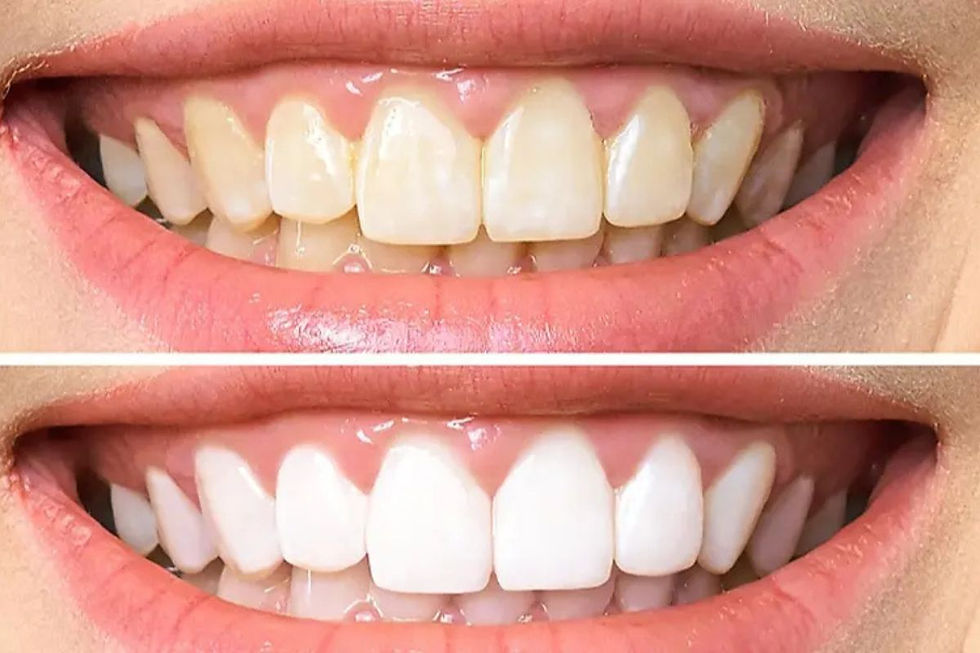Can One Reverse Tooth Decay or a Cavity?
- meydenbeaurdental
- Jun 12, 2024
- 3 min read

Tooth decay and cavities are common dental issues that many people face. These problems can lead to significant discomfort and can affect one's overall health if left untreated. But is it possible to reverse tooth decay or a cavity? This article explores this question in detail, offering insights and practical advice on maintaining good oral health. For those seeking professional advice, consulting a Dentist can be beneficial.
Understanding Tooth Decay and Cavities
Tooth decay occurs when the enamel, the hard outer layer of the tooth, is damaged by acids produced by bacteria in the mouth. These acids are the result of the bacteria feeding on sugars and starches left on the teeth. If not properly managed, this decay can progress into cavities, which are essentially holes in the teeth caused by prolonged damage.
The Process of Tooth Decay
Tooth decay progresses through several stages:
Initial Demineralization: The enamel loses minerals due to acid exposure. This stage is often visible as white spots on the teeth.
Enamel Decay: The decay continues to erode the enamel, reaching deeper layers of the tooth.
Dentin Decay: The decay penetrates the enamel and affects the dentin, a softer layer beneath the enamel.
Pulp Damage: The decay reaches the tooth pulp, which contains nerves and blood vessels, causing pain and possibly leading to infection.
Is Reversal Possible?
Reversing tooth decay depends largely on the stage at which it is caught. Early stages of demineralization can indeed be reversed with proper oral care and dietary changes. However, once a cavity has formed, professional dental intervention is usually required.
Early Stage Reversal
In the initial stages of tooth decay, it is possible to stop and even reverse the process. Here are some effective strategies:
Fluoride Treatment: Fluoride helps to remineralize the enamel, making it more resistant to acid attacks. Fluoride can be applied through toothpaste, mouth rinses, and professional treatments from a Dentist in Bellevue.
Dietary Changes: Reducing the intake of sugary and starchy foods can significantly decrease the amount of acid produced by bacteria. Incorporating foods rich in calcium and phosphates can help strengthen the enamel.
Proper Oral Hygiene: Brushing twice daily with fluoride toothpaste, flossing daily, and using an antibacterial mouthwash can help remove plaque and prevent further decay.
Advanced Decay and Cavities
Once tooth decay has progressed to the point of forming a cavity, professional dental treatments are necessary. These may include:
Dental Fillings: A common treatment for cavities where the decayed material is removed, and the cavity is filled with a dental material.
Crowns: For more extensive decay, a crown may be placed over the tooth to restore its shape, size, and function.
Root Canals: If the decay has reached the tooth pulp, a root canal may be necessary to remove the infected material and save the tooth.
Extractions: In severe cases where the tooth cannot be saved, extraction may be required, followed by options like implants or bridges to replace the missing tooth.
Preventive Measures
Preventing tooth decay and cavities is far more effective and less costly than treating them. Here are some preventive measures that can help maintain optimal oral health:
Regular Dental Check-Ups
Visiting a Dentist in Bellevue regularly for check-ups and cleanings is crucial. Dentists can spot early signs of decay and provide treatments to prevent it from progressing. Professional cleanings remove plaque and tartar that regular brushing and flossing might miss.
Fluoride Use
Using fluoride toothpaste and drinking fluoridated water can strengthen tooth enamel. Fluoride treatments from your Dentist in Bellevue can provide additional protection, especially for those at higher risk of cavities.
Healthy Diet
A balanced diet low in sugar and high in fruits, vegetables, and dairy products can help maintain strong teeth. Avoiding frequent snacking and sugary drinks reduces the acid exposure that leads to tooth decay.
Oral Hygiene Routine
Maintaining a diligent oral hygiene routine is the foundation of preventing tooth decay. This includes:
Brushing twice a day for at least two minutes each time.
Using fluoride toothpaste.
Flossing daily to remove plaque between teeth.
Rinsing with an antibacterial mouthwash to reduce plaque and bacteria.
While it is possible to reverse tooth decay in its early stages through proper oral hygiene, diet, and fluoride treatments, advanced decay and cavities require professional dental care. Maintaining regular dental visits with a Dentist in Bellevue is essential for early detection and prevention of tooth decay. By following preventive measures and seeking timely dental care, you can keep your teeth healthy and avoid the discomfort and complications associated with cavities.
For those experiencing tooth decay or cavities, or simply looking to maintain optimal oral health, scheduling an appointment with a Dentist in Bellevue can provide personalized advice and treatment options tailored to your needs. Remember, taking proactive steps today can ensure a healthier smile tomorrow.



Comments